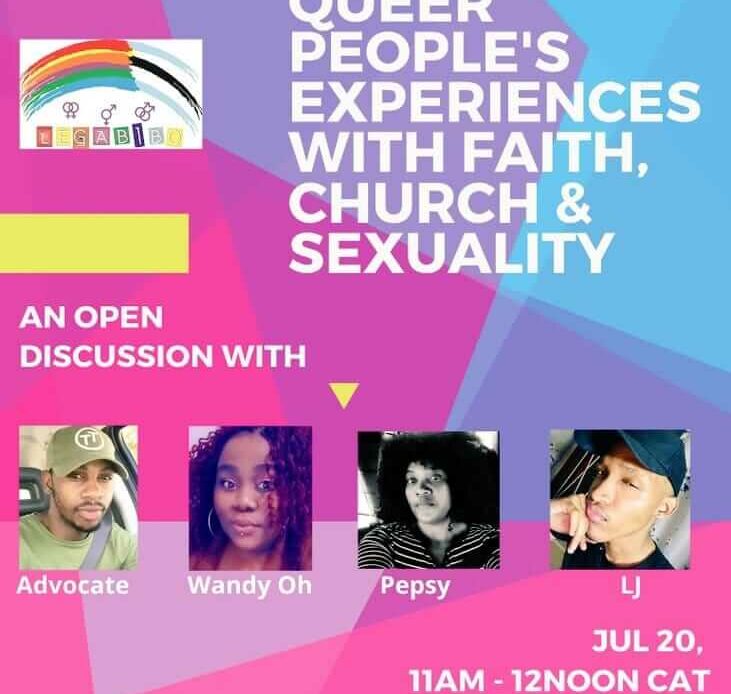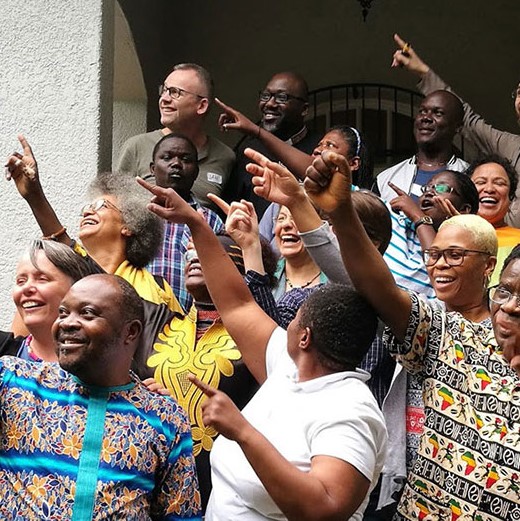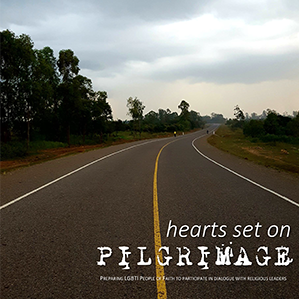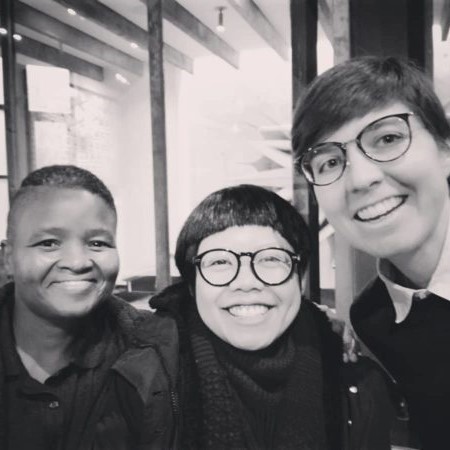We are heading for 6 months of living in limited physical contact with anyone. As the Covid-19 pandemic has spread across the globe at a rapid and relentless pace, the dialogue partners throughout the countries of Botswana, Lesotho and Namibia have been finding ways to hold onto some form of solid ground.
With much uncertainty, levels of anxiety and depression have swept through our communities. The LGBTIQ+ communities have further been marginalised as many gender and sexual minority identities find it difficult to access food, shelter and psychosocial support. During these past months many of us have lost loved ones, colleagues and friends not only to the corona virus, but also to socio economic and psychological depression. GIN has remained committed to sustaining the inroads that have been made in ensuring that people of all sexes, sexual orientations, gender identities and expressions are honoured, supported and protected. In so doing, GIN has engaged with many LGBTIQ+ individuals and to identify the needs of dialogue partners, religious leaders, LGBTIQ+ anchor organisations and allies during this time.
From these conversations, we have managed to refocus our resources to cater to the lived realities of dialogue partners in each of the active countries. We have also kept contact with future Hearts Set on Pilgrimage retreat countries such as Malawi and Mozambique. One of the most pressing calls by people to whom we spoke during this time was access to food. We reached out to the regional World Food Programme (WFP) office who has in turn reached out to each of the in-country WFP offices to see how they could assist. Due to diplomacy, WFP works hand in hand with each country to meet their identified needs, which meant that in most cases LGBTIQ+ people were not a priority. We then turned to our religious leader allies through the FHGJN (FOCCISA Health and Gender Justice Network) to ask them to assist in calling on their governments to recognize that there is a need for food to be distributed to gender and sexual minority groups as well as womxn and children.
Another barrier to mental wellness is access to information through media platforms. GIN has been successful in requesting a reallocation of resources to provide data vouchers to each of the dialogue partners in the active countries. There is an acute awareness that many LGBTIQ+ individuals, especially youth may be living in households that are hostile, violent and oppressive. In order to curb this negative impact , access to information and contact with affirming people is vital. We support the global call for a decrease in tariffs on data especially during a time like this when many people are unable to physically reach out for help.
Dialogue partners continue to remain engaged through Whatsapp groups and other social media platforms. As lockdown regulations change in certain contexts, dialogue partners are meeting in small groups where it is safe to do so adhering to the use of personal protective equipment, regular washing of hands and physical distancing. These engagements are done with a focus on safety taking priority over anything else. In Namibia our dialogue partners in certain communities have been able to continue with some support activities which are locally coordinated by Tulinam and dialogue partners themselves.
To end on a lighter note, we are so happy and appreciative to have three more GIN team members working part time on the RDP programme. This has been managed through a partnership between GIN Secretariat and local anchor LGBTIQ+ organisations. These are Chantell Fortuin (Botswana), who has filled the role as regional RDP coordinator, Seipone Boitswarelo (Botswana), in-country coordinator for Botswana and Dee Malelu (Lesotho), in-country coordinator for Lesotho. Chantel and Seipone are both being locally hosted by LEGABIBO (Lesbians, Gays and Bisexuals of Botswana) and Dee is being hosted by The People’s Matrix. In August we will have one more in-country coordinator joining the team from Mozambique, who will be hosted by Lambda. We further aim to have an in-country coordinator in Namibia as well, with the partnership of Tulinam.
Please do you keep your eyes on our social media platforms as the RDP team plan to host a number of interactive activities that speak to the intersectionality of faith, gender and sexuality. We will be co-hosting some events with our partners.
Please feel free to email Pierre at pierre@gin-ssogie.org for information on the Religious Dialogue Partners’ programme. We also welcome emails that offer suggestions to how we can improve on our work.





